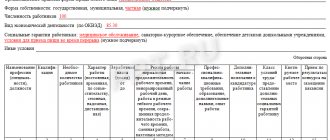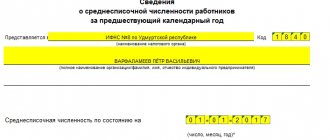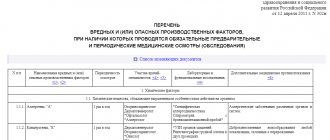Article 29. Employee representatives
Representatives of workers in social partnership are: trade unions and their associations, other trade union organizations provided for by the charters of all-Russian, interregional trade unions, or other representatives elected by workers in cases provided for by this Code.
(as amended by Federal Law No. 90-FZ of June 30, 2006)
The interests of employees when conducting collective negotiations, concluding or amending a collective agreement, monitoring its implementation, as well as when exercising the right to participate in the management of the organization, considering labor disputes between employees and the employer are represented by the primary trade union organization or other representatives elected by employees.
(as amended by Federal Law No. 90-FZ of June 30, 2006)
The interests of workers when conducting collective negotiations, concluding or amending agreements, resolving collective labor disputes regarding the concluding or amending agreements, monitoring their implementation, as well as when forming and carrying out the activities of commissions to regulate social and labor relations are represented by the relevant trade unions and their territorial organizations , associations of trade unions and associations of territorial organizations of trade unions.
(as amended by Federal Law No. 90-FZ of June 30, 2006)
REPRESENTATIVES OF WORKERS AND EMPLOYERS IN THE SOCIAL PARTNERSHIP
Home Favorites Random article Educational New additions Feedback FAQ⇐ PreviousPage 2 of 9Next ⇒
Representatives of workers in social partnership are trade unions and their associations , other trade union organizations provided for by the charters of all-Russian trade unions, or other representatives elected by workers in cases provided for by the Labor Code of the Russian Federation.
The interests of the organization's employees when conducting collective negotiations, concluding and amending a collective agreement, monitoring its implementation, as well as when exercising the right to participate in the management of the organization, considering labor disputes between employees and the employer are represented by the primary trade union organization or other representatives elected by employees. In turn, representatives of the employer are the head of the organization or persons authorized by him in accordance with the Labor Code of the Russian Federation, laws, other regulatory legal acts, constituent documents of the organization and local regulations.
The interests of workers when conducting collective negotiations on the conclusion and amendment of agreements, resolving collective labor disputes regarding the conclusion or amendment of agreements, monitoring their implementation, as well as when forming and carrying out the activities of commissions for regulating social and labor relations are represented by the relevant trade unions and their territorial organizations, associations of trade unions and associations of territorial organizations of trade unions. In these cases, the interests of employers are represented by the relevant associations of employers.
An association of employers is a non-profit organization that unites employers on a voluntary basis to represent the interests and protect the rights of its members in relations with trade unions, state authorities and local governments.
The specifics of the legal status of an employers' association are established by federal legislation.
Representatives of employers - federal government institutions, state institutions of constituent entities of the Russian Federation, municipal institutions and other organizations financed from the relevant budgets, when conducting collective negotiations, concluding or amending agreements, resolving collective labor disputes regarding the concluding or amending agreements, monitoring the implementation of agreements, The formation of commissions for the regulation of social and labor relations and the implementation of their activities are also carried out by the relevant federal executive authorities, executive authorities of the constituent entities of the Russian Federation, other state bodies, and local government bodies.
COLLECTIVE AGREEMENT, ITS PARTIES
A collective agreement (CA) is a legal act that regulates social and labor relations in an organization or an individual entrepreneur and is concluded by employees and the employer represented by their representatives.
The design agreement determines the organization of labor relations, the level of claims of employees, the validity of their demands, thereby protecting the interests of the employer.
The interests of the employee in the contract acquire legal form; they can be protected with the help of state regulation.
Employees of an organization have the right, but are not obligated, to enter into a contract of agreement with their employer. In turn, the employer is obliged to begin negotiations on concluding a contract within a week if he has received such an offer.
The initiator of the development, conclusion, amendment and termination of a contract of agreement can be any of the parties - both employees and the employer.
It is prohibited to include conditions that worsen the situation of workers in comparison with legislation, collective agreements and agreements. Such CDs are considered invalid.
The parties to the contract are:
1) employees represented by one or more trade union bodies or other representative bodies authorized by employees;
2) employers represented by the administration of an organization, enterprise, institution, branch or representative office, or individual entrepreneurs.
Mandatory participants of the CD:
1) the employer as the owner of the production and party to the contract;
2) his representative, the administration headed by the director, manager, manager;
3) the labor collective as a party to the contract;
4) trade union as a representative of the workforce;
5) subjects - performers of individual obligations.
Representatives of the employer are heads of organizations or other authorized persons.
Employers, executive authorities, local governments, and political parties cannot create workers' bodies that will represent them when concluding contracts.
Persons representing employers do not have the right to represent employees.
If negotiations on the conclusion of a contract are carried out by a trade union body, then employees who are not members of the trade union may authorize the trade union to represent their interests during negotiations.
STRUCTURE AND CONTENT OF THE COLLECTIVE AGREEMENT
The content and structure of the collective agreement are determined by the parties, but basically the collective agreement consists of several sections and appendices: 1) introductory part. It formulates the main directions of development of the organization; 2) rights and obligations of the administration, employer; 3) the rights and obligations of the organization’s employees and their representative bodies.
Sections and appendices of the Contract of Agreement contain regulations and obligations of the parties. The regulatory provisions of the Code of Conduct should not worsen the situation of workers in comparison with the current legislation.
The content of the contract of agreement is determined by its parties. It may include mutual obligations of employees and the employer on the following issues :
• forms, systems and amounts of remuneration;
• payment of benefits, compensation;
• mechanism for regulating wages taking into account rising prices, inflation levels, and fulfillment of indicators determined by the design documentation;
• employment, retraining, conditions for releasing workers;
• working time and rest time, including issues of granting and duration of vacations;
• improving the working conditions and safety of workers, including women and youth;
• respecting the interests of employees during the privatization of organizations and departmental housing;
• environmental safety and health protection of workers at work;
• guarantees and benefits for employees combining work with training;
• health improvement and recreation for employees and members of their families;
• partial or full payment for employees' meals;
• control over the implementation of the design documentation, the procedure for making changes and additions to it, the responsibility of the parties, ensuring normal conditions for the activities of employee representatives.
Taking into account the financial and economic situation of the employer, the written contract may establish benefits and advantages for employees, working conditions that are more favorable in comparison with those established by laws, other regulations, and agreements.
The contents of the agreement must include an indication of the validity period, the procedure for amending the agreement, and the deadline for the parties to report on the implementation of the collective agreement.
CONCEPT AND TYPES OF EMPLOYMENT
Employment is an activity of citizens that does not contradict the law, related to the satisfaction of personal and social needs and, as a rule, generating earnings (labor income).
Types of employment:
1) hired work for full or part-time work, including temporary and seasonal work. Temporary absence from work does not interrupt the state of employment;
2) entrepreneurship, including farming;
3) independent provision of work (persons of creative professions);
4) work based on membership in cooperatives and artels;
5) elective work in paid positions, public service;
6) military and equivalent service
7) study in any full-time educational institutions, including in the direction of the employment service;
 work under civil law contracts;
work under civil law contracts;
9) auxiliary industries and sales of products under contracts.
Employment should be:
• complete, i.e. satisfy the demand for a place;
• provide sufficient support for the existence of the employed person and his family members;
• freely chosen.
Citizens choose the type of activity independently through commercial employment services or through the state employment service, with the provision, in appropriate cases, of social and legal guarantees and compensation.
The Federal Service for Labor and Employment was formed in accordance with Decree of the Government of the Russian Federation of April 6, 2004 No. 156.
All citizens (employed and unemployed) can contact the employment service. The State Employment Service provides services to citizens free of charge.
Legal regulation of employment is carried out:
• federal laws (Labor Code of the Russian Federation, Law “On the Status of Military Personnel”, etc.);
• international legal acts on labor ratified by the state;
• decrees of the President of the Russian Federation (“On additional measures to protect pregnant women and women with children under 3 years of age, dismissed due to the liquidation of enterprises and organizations”, etc.);
• resolutions of the Government of the Russian Federation (Regulation “On the organization of work to promote employment in conditions of mass layoffs of workers”, etc.);
• departmental acts (decrees of the Ministry of Labor and Social Development of the Russian Federation);
• current acts of the Federal Employment Service abolished in August 1996;
• laws and other acts of constituent entities of the Russian Federation.
• acts of local government bodies (they may establish other criteria for the mass release of workers);
• collective agreements and agreements.
⇐ Previous2Next ⇒
Article 30. Representation of the interests of workers by primary trade union organizations
(as amended by Federal Law No. 90-FZ of June 30, 2006)
Primary trade union organizations and their bodies represent in social partnership at the local level the interests of the employees of a given employer who are members of the relevant trade unions, and in the cases and in the manner established by this Code, the interests of all employees of a given employer, regardless of their membership in trade unions during collective bargaining. , concluding or amending a collective agreement, as well as when considering and resolving collective labor disputes between employees and the employer.
Employees who are not members of a trade union may authorize the body of the primary trade union organization to represent their interests in relations with the employer on issues of individual labor relations and relations directly related to them under the conditions established by this primary trade union organization.
Primary trade unions
Domestic legislation allows members of various trade union organizations to unite. Such associations are “primary trade unions”. Their goal is to defend the interests of team members in the event of signing or breaking a collective agreement, as well as in collective negotiations.
The legislation allows the creation of such associations in companies with any form of ownership. The work of these trade union organizations is based on provisions that are adopted in accordance with the charter. In other cases, the provisions on the trade union are taken as a basis.
Assistance to the primary organization, as Art. 30 Labor Code can also be received by employees who are not members. Law No. 10-FZ of January 12, 1996 obliges the provision of legal assistance for hired employees, without taking into account the specialist’s membership in a trade union. To obtain protection, a citizen must grant such an organization the authority to represent.
Social partnership system in the Russian Federation
Article 31. Other representatives of employees
(as amended by Federal Law No. 90-FZ of June 30, 2006)
In cases where the employees of a given employer are not united in any primary trade union organizations or none of the existing primary trade union organizations unites more than half of the employees of a given employer and is not authorized, in the manner established by this Code, to represent the interests of all workers in social partnership at the local level, at a general meeting (conference) of employees, another representative (representative body) may be elected from among the employees to exercise these powers by secret ballot.
The presence of another representative cannot be an obstacle to the exercise by primary trade union organizations of their powers.
Results
The collective of workers participates in social partnership through its representative, who can either be nominated by the trade union body or elected at a general meeting of members of the labor collective.
Representatives have the right to a number of guarantees related to the functions entrusted to them, and are responsible for their failure to fulfill them. You can find more complete information on the topic in ConsultantPlus. Free trial access to the system for 2 days.
Article 33. Representatives of employers
The interests of the employer when conducting collective negotiations, concluding or amending a collective agreement, as well as when considering and resolving collective labor disputes between employees and the employer are represented by the head of the organization, the employer - an individual entrepreneur (personally) or persons authorized by them in accordance with this Code, other federal laws and other regulatory legal acts of the Russian Federation, laws and other regulatory legal acts of the constituent entities of the Russian Federation, regulatory legal acts of local government bodies, constituent documents of a legal entity (organization) and local regulatory acts.
(Part one as amended by Federal Law No. 90-FZ dated June 30, 2006)
When conducting collective negotiations, concluding or amending agreements, resolving collective labor disputes regarding their conclusion or amending, as well as when forming and carrying out the activities of commissions to regulate social and labor relations, the interests of employers are represented by the relevant associations of employers.
An association of employers is a non-profit organization that unites employers on a voluntary basis to represent the interests and protect the rights of its members in relations with trade unions, state authorities and local governments.
The specifics of the legal status of an employers' association are established by federal law.
Social partnership as a category of market society
The importance of social partnership in the world of work
The market society in which we live is built on the principles of free choice in the production process, based on personal interests, which in modern life are the main motivator and engine in the economy.
Commerce, business, various forms and types of ownership of a set of means and objects of labor, market price formation, relations between economic entities based on contracts and minor government intervention in economic activity are characteristic features of the current social structure.
In organizations, enterprises, companies, social and labor relations are regulated by a legal document called a collective agreement, which is developed and concluded by representatives of employers and employees.
Cooperation, contacts between business and society are the answer to the question of what social partnership is. This refers to the fact that for the business community, in addition to making a profit, there is a human indicator that takes into account the degree of influence of economic activity on workers, the city-forming significance of enterprises and the social significance of the association in general.
Important! Social partnership is able to cope with many conflicts and disagreements that sometimes arise in the public or labor sphere. But the basic contradiction that exists between private property or capital and the labor sphere remains unresolved.
The procedure for the activities of the social partnership has been established:
- each participating group has equal rights to initiate negotiation processes;
- at the moment of communication, the benefits of both parties are taken into account, respect is shown to all participants;
- regarding the establishment of legislation, the countries participating in the negotiations, taking into account an interested approach to contractual relations, can solve a number of significant problems;
- to promote and strengthen partnerships as democratic foundations, organizing cells have been created that contribute to the regulation of public and labor relations;
- participants must comply with the Labor Code of the Russian Federation and other documents, when signing a public agreement, they must fulfill its terms;
- representatives of the partnership are competent in matters confirmed by the minutes of the employees’ meeting and an order from the employer;
- The legislation of the Russian Federation gives both parties the opportunity to choose problematic topics for resolution;
- obligations are accepted by the partnership participants voluntarily without pressure or blackmail;
- the duties undertaken must be realistically feasible and must be carried out without fail;
- supervisory authorities monitor the implementation of approved collective documents;
- the parties and their representatives bear administrative responsibility for failure to comply with collective agreements and agreements through their fault.
Article 34. Other representatives of employers
(as amended by Federal Law No. 90-FZ of June 30, 2006)
Representatives of employers - federal government institutions, state institutions of constituent entities of the Russian Federation, municipal institutions and other organizations financed from the relevant budgets, when conducting collective negotiations, concluding or amending agreements, resolving collective labor disputes regarding the concluding or amending agreements, monitoring the implementation of agreements , the formation of commissions for regulating social and labor relations and the implementation of their activities are also the relevant federal executive authorities, executive authorities of the constituent entities of the Russian Federation, other state bodies, and local government bodies.
Trade unions and their associations
Trade unions refer to voluntary associations of citizens bound by common interests due to the nature of their own activities, which are created to protect their labor rights and interests. Similar structures are endowed with the same rights.
The right to form trade unions can be used freely, without obtaining additional permissions. Any person who has reached the age of 14 and works in a specific structure has the opportunity to do this.
The following have the right to belong to Russian labor unions:
- citizens of Russia;
- foreigners and persons who do not have citizenship, but live on the territory of the Russian Federation, with the exception of situations that are established by laws at the federal level or contracts at the international level.
Trade unions have the right to create their own associations. They can arise based on industry, territorial or other characteristics that take into account professional specifics.
Author of the article
Definition
Social partnership is a system of relationships between employees (or their representatives), employers (or their representatives), and representatives of state and municipal authorities. The goal is to take into account and harmonize the interests of all parties to the labor process in the sphere of regulation of labor relations and other related issues.
It is interesting that experts still do not have a clear opinion regarding the definition of social partnership. The most common basic versions are:
- a specific type of social relationships between social groups, structures, classes, communities;
- a mechanism for regulating relationships between workers, enterprise managers and authorities;
- social and labor relations ensuring equal cooperation between workers and employers in order to respect their key interests.
State of the issue in Russia
In Russia, social partnership is tripartist (implies three participants - employee, employer and state). We can say that at the moment it is at the stage of development and is not yet fully operational. In particular, the mechanisms through which the decisions taken could be implemented have not been developed or launched. However, some industries are seeing significant progress. For example, tariff agreements in the mining industry led to an increase in production and an improvement in the financial situation of workers.
According to researchers, for the active development of social partnership it is necessary to develop and implement a system of state propaganda. It can be implemented through social advertising, Internet sites, explanatory work, seminars, conferences and round tables. It is important to achieve a common interest of the parties in cooperation.








